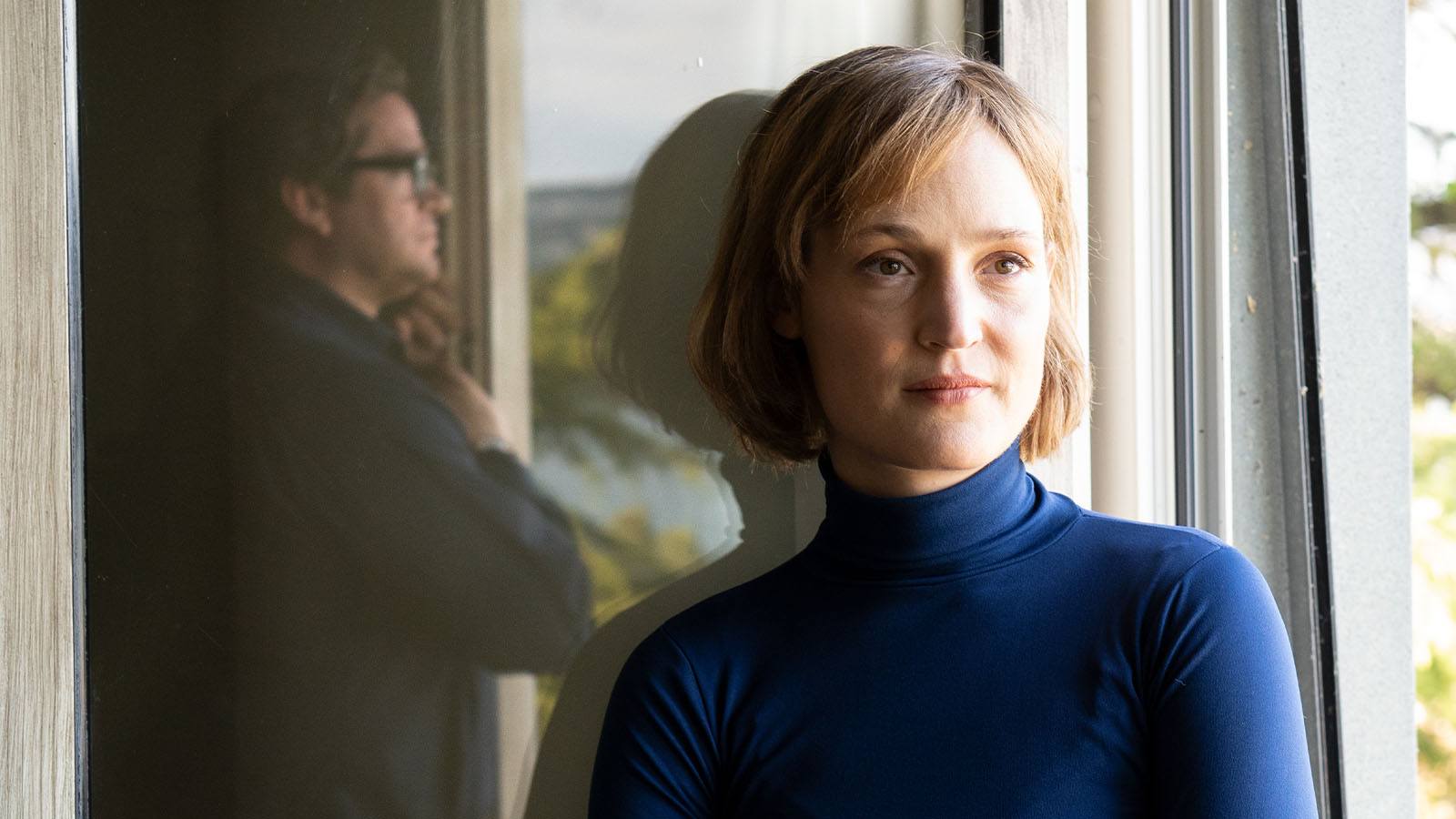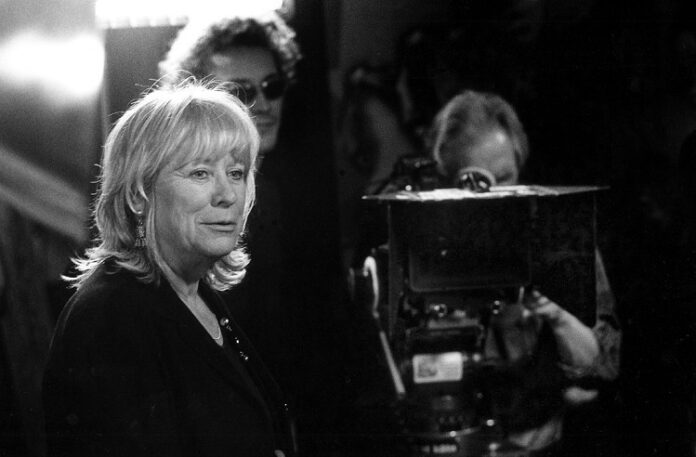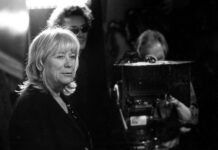“Women, Life, Freedom” has always been my personal credoShiva Akhavan Rad
Margarethe von Trotta is known as the world’s leading feminist filmmaker and the first female director to win the Golden Lion at Venice Film Festival for her film Marianne and Juliane (1981). She was a central figure within New German Cinema in the 1970s. In her films von Trotta has dealing primarily with women’s issues such as contraception, abortion, spousal abuse and the situation of women in Modern European societies. Her films are often based on female characters, especially famous thinkers and revolutionary figures such as Rosa Luxemburg and Hannah Arendt. Although Von Trotta is very busy these days editing her new film, however, she accepted my request for a short interview about her cinematic and political views, including the position of women in the film industry after the Me Too movement, the reaction of international filmmakers to the Woman, Life, Freedom movement, the suppression of protesters in Iran and the imprisoned Iranian filmmakers. She also talked about her latest film Ingeborg Bachmann – Journey into the Desert which is a biopic of the Austrian poet and writer Ingeborg Bachmann that will compete for the Golden Bear at the Berlin Film Festival 2023.
The filmmakers involved in the new German cinema movement, were predominantly men, but there were also women like you who made significant contributions during this time. However, as a woman, how did you feel about working in the male dominant environment of cinema in that time?
Margarethe von Trotta : It was a sort of crazy dream, because at the time there was only one woman, Agnès Varda, and she belonged to the „Nouvelle Vague“ and was more considered as member of this group instead of a female filmmaker. It lasted a long time and I had to become first an actress before I could dare to make my first film. And for years I was treated, in Germany, like „shit“ from the male critics.
You consistently stated that Ingmar Bergman served as your artistic mentor and had a significant influence on your films. Can you elaborate on what specific aspects of Bergman’s work and filmmaking style resonated with you and had such a profound impact on your work?
I was living in Paris when I saw for the first time a film of Ingmar Bergman „The seventh Seal” and I knew immediately that I would try anything to become a filmmaker myself.
I have a question about your film Hanna Arendt. According to Arendt, Eichmann was not a monster, but a normal human being who did not act according to his ideology, but as a conscientious German, he was only subject to the orders of Hitler and the Nazi party authorities. But the fact is that Eichmann violated his conscience and wholeheartedly supported a fascist regime and its anti-human programs and participated in the crimes against humanity. Eichmann believed deeply in the Nazi ideology and advocated Hitler’s racial cleansing policies. In your opinion, is it possible to ignore individual responsibility in a fascist or totalitarian system and justify any crime against humanity simply as a duty? Do you agree with Arendt’s statement that no one is a monster, which means that anyone is capable of committing monstrous acts, anyone can be a sinner, and cannot justify their sin by relying on the “universality of sin”?
Yes, I am absolutely of Hannah Arendt’s opinion. She says „Eichmann was not a monster“…. It would be easy to say only monsters acted like him. He didn’t use his own capacity to think, but put it in the hands of the Nazis and their ideology. He was guilty because he gave up this human capacity to THINK.
In your opinion, to what extent has the cinema been able to correctly portray the situation of women and the suffering they endure in patriarchal societies?
It is true that more women filmmakers are gaining recognition and awards, including Oscars. However, it is important to note that representation and recognition for women in the film industry is not equal across all countries and cultures. In Iran, for example, women still face significant barriers and discrimination in their fight for basic rights. Therefore, it is both hopeful and tragic that progress for women in the film industry is not universal.

What has been the impact of the MeToo movement in film industry? Did it improved the work condition of women in cinema? How can women resist those who use their power and influence in cinema to abuse women?
The MeToo Movement may have come too late for many women, but it has brought about changes in the way men in the film industry, and in other fields, use their power. As a former actress, I was often faced with offers from directors that were contingent on me engaging in sexual acts with them and if I would make love with them, I could get the part. Thanks God I had a mother who taught me to be independent and to stand up for my own beliefs. These values helped me to resist these advances and to defend my own opinions.
Where do you think the line is between being an artist and being a political activist? Is it possible to avoid the burden of human responsibility towards society by saying that I am an artist and not a political activist?
As an artist, I have always been conscious of history and the past. Being born during World War II in Berlin has made me naturally attuned to politics. I have made several films that incorporate political themes, even though I often begin with personal stories, particularly those of women, which are intertwined with the fate of my country. I do not subscribe to the idea of “L’art pour l’Art”(art for art’s) sake” and believe that art should have a purpose beyond aesthetic pleasure.
As you know, Iran is going through difficult times, and young Iranian women, who have put all their energy and strength into gaining their freedom and basic human rights, have been severely oppressed by the government. What is your opinion about the Iranian women’s movement and the slogan “Woman, Life, Liberty”(Zan, Zendegi, Azadi) that they shout in the streets?
I have been following the situation of women in Iran for a long time, as I have a keen interest in Iranian cinema and have often wondered how women in your country are able to make films about oppression against them. I am friends with an Iranian writer living in Paris, and she has helped me understand many of the contradictions in the situation. From time to time, we have had hope for change in your country, or at least, it seemed that it might finally be possible for women to make decisions about their own lives. Therefore, I am not only shocked, but deeply concerned and upset about what is happening in your country now. “Women, Life, Freedom” has always been my personal credo, but I have never had to defend it against such cruelty and violence.
You once said in an interview that you were never in favour of violence. In the last few months we saw young Iranians who were fighting for liberty and human rights in Iran were brutally beaten and killed in the streets. Some of them resorted to violence against violence. Do you condemn them for committing violence against violence?
What a question! How could I condemn these women who are putting their lives at risk, as I have not had to do the same. Instead, I have immense admiration for them. I am unsure if I would have the same courage, but I can only hope that I would.
As you know some Iranian filmmakers are in prison right now. They were arrested for their critical opinions and for supporting mass anti-government protests in Iran. What do you think the filmmakers around the world can do for their release and return to filmmaking?
What actions can we take? We are constantly protesting, but the government remains steadfast in their belief that they have the right to govern and kill, rendering our protests seemingly futile.
Most of your films are about brave women who are fighting for justice and their rights. Could your next film possibly be about an Iranian woman fighting for freedom and her basic human rights? As a filmmaker, if you wanted to make a film about today’s women in Iran and this freedom movement, through which lens would you address the issue?
I have always believed that it is important for me to tell stories about my own country and my own experiences within it. I have often been offered the opportunity to make a film in North or South America but I have refused to do that, as I do not have enough knowledge or understanding of those countries and their history. As I have never been to Iran and do not speak the language, my only option is to observe and protest.

Your upcoming film will be premiered at the Berlinale and I understand that it is again a biopic centers around the Austrian writer, Ingeborg Bachmann. What aspect of this feminist figure particularly caught your attention and inspired you to focus on it in your film?
It’s not a classical biopic, more a sort of monologue of Ingeborg Bachmann about the four years she lived together with Max Frisch, a Swiss writer.I was interested how two writers would be able to live together and if there would be too much competition. In her time Ingeborg Bachmann was unusually independent and refused marriage, but nevertheless hoped to be protected by her man.. Since I was many years married to Volker Schlöndorff, a famous German film director, I was curious to confront our relationship to theirs.



